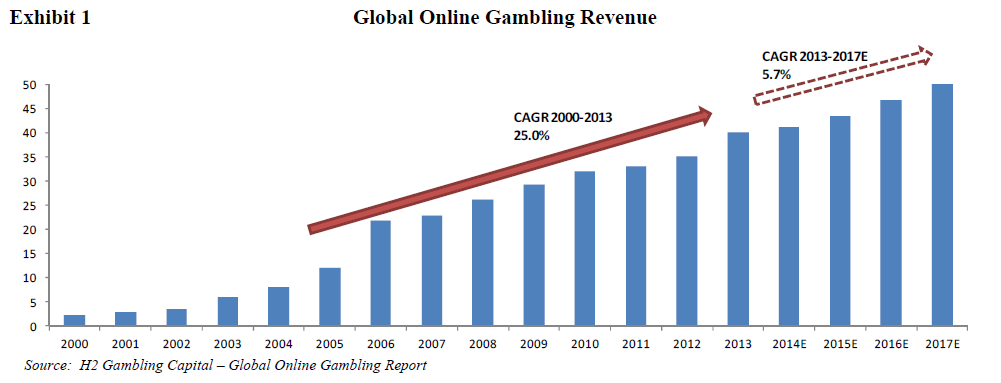Real Money Casino USA
Trusted Reviews, Bonuses, and Gambling News
A Sign Of A Better Economy: Gambling Revenue’s Up
A recent report stated that gambling revenues in the USA have climbed to almost $100 billion annually, which is an increase of more than 6 percent since 2009. With the recent failure of anti-casino advocates to repeal licensing in Massachusetts and New York, it appears that the anti-gambling groups are losing both their steam and their influence as there has is still growth worldwide.
There are several potential negative political effects the recent midterm elections in America, especially with the issue of gambling licesing. Republicans were the ones to attach the Unlawful Internet Gambling Enforcement Act of 2006 (UIGEA) at the last minute to the budget bill, and now have control of both the House and the Senate. Right now, many states are increasing their revenue streams by licensing casinos so it is not likely that any immediate push for federal action that would override the state’s laws will be forthcoming. Right now…
Politics aside, the fact that $100 billion is gambled every year by Americans and states, cities, and local municipalities are benefiting from the taxes paid through casinos and made by lotteries. The old argument of restricting or banning online gambling because the government will lose billions in taxes no longer has any teeth. Americans are willing to pay to play, and even opponents of gambling are enjoying the results of increased state revenues by realizing a silent moratorium of increased property taxes by state legislatures.
 It seems gambling is no longer considered an evil that attracts the worst of the worst in society, but is it just another form of entertainment? The argument that gambling does little except cause problems has been squashed by its continued general acceptance by many Americans who are joining the rest of the world in acceptance. Yes, there are problems associated with the industry including corruption, greed, and social ills, but any form of adult entertainment has some negatives attached to it. Most people recognize this fact and the recent increase in gambling revenue indicates that while it is not a perfect one, it is a manageable one.
It seems gambling is no longer considered an evil that attracts the worst of the worst in society, but is it just another form of entertainment? The argument that gambling does little except cause problems has been squashed by its continued general acceptance by many Americans who are joining the rest of the world in acceptance. Yes, there are problems associated with the industry including corruption, greed, and social ills, but any form of adult entertainment has some negatives attached to it. Most people recognize this fact and the recent increase in gambling revenue indicates that while it is not a perfect one, it is a manageable one.
One major factor in the growth of gambling is that people want to be reasonably assured that the game play is fair. This was one of the larger contexts of the UIEGA in 2006 – that real money online casinos, which were all based outside of American soil, were fleecing the players by cheating or changing the payouts. The sites were rigged, and there was enough evidence to bring a few to justice that supports this conclusion. When states, and not the federal government, gained control of the licensing, construction, and management, of casinos more people saw that the odds were indeed fair. To both the people and legislators of many states, any federal comment was considered to be intrusive.
A more obvious factor is that Americans simply have a better economy to work in, thus have more money for discretionary spending. Justice Department ruling in 2011 helped propel the expansion of internet gambling as the federal legislators remained mum on the issue. A better economy combined with relaxed regulation of gambling combined to get people out of the house and be able to enjoy the benefits of increased prosperity.
The future growth of gambling in America is not a certainty. Political wrangling in Washington D.C. has elected leaders trying to maintain the status quo. Economic factors, such as a potential increase in interest rates, can slow the flow of money into casinos. One important factor that has changed since the 2006 UIEGA is the attitude of Americans towards gambling has turned more accepting and more positive. This makes opposition to new casino licensing and construction less likely. Need proof? See New York state’s current situation.
What is clear from this news is that more people are turning to gambling online as a form of entertainment and a personal expression of freedom. It was never illegal to go to Las Vegas or Atlantic City to gamble, nor on Indian reservations. But getting to these locations required living in close proximity to them or spending hundreds of dollars. Making it local made it simpler, easier, and far less expensive in time and money. But it is naive to try to separate gambling and politics, whether at the federal level or the local level. With a Republican controlled House and Senate, and an increase in the number of Republican governorship’s, there is a lot that needs to be separated out before any long term bets should be placed.

